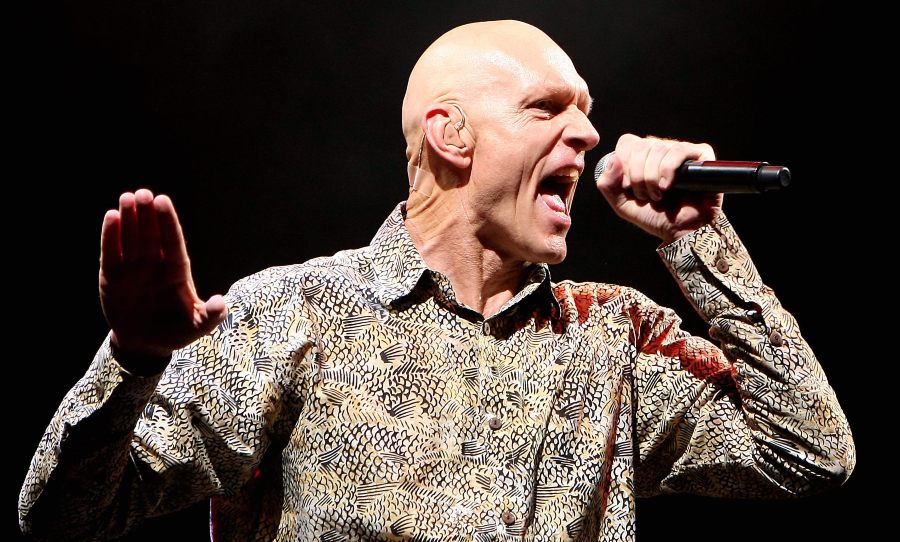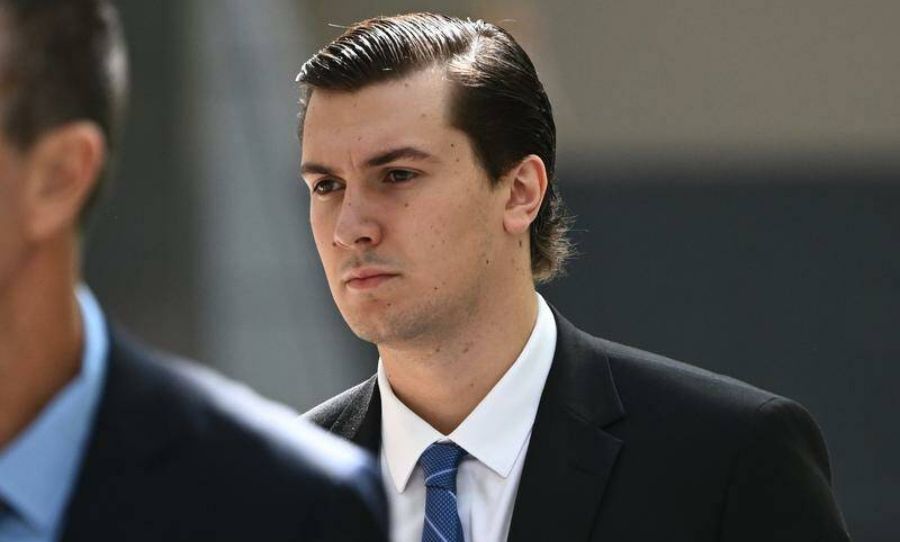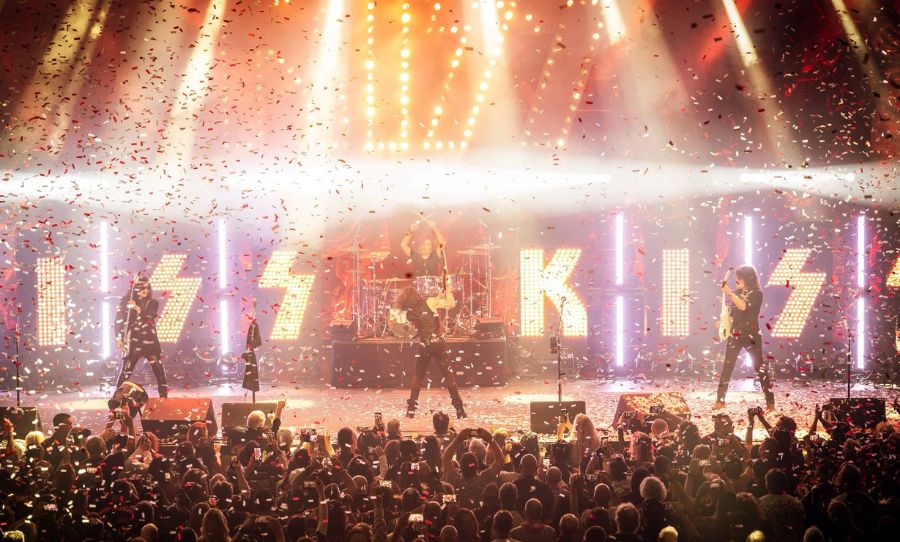On the doorstep of the US presidential election, we look at how music and politics converge come election time. From campaign jingles to protest songs, music has its place in shaping who we choose to run the show.
In modern times, music has become increasingly intertwined with politics and elections. To argue that they are mutually exclusive would dismiss the works of Paul Kelly, Midnight Oil, N.W.A, and Rage Against the Machine (apparently some people only just found out they were a political band).
A conservative-dominated British political system in the ’70s and ’80s saw the birth of a genre of anti-establishment musicians. Bob Dylan’s The Times They Are A-Changin’ created an anthem for progress in the United States, while Australian rock ‘n’ roll has similarly provided a catalyst for political outcry.

With the November 3 election proving to be every bit as controversial and publicised as any in history, we take a look at music’s place in elections past, delving into protest songs, campaign jingles, industry endorsements, and even those musicians who decided to try their own hand at politics, thinking: “Fuck it, I’ll do it myself.”
The 2020 election
A campaign song can play a major role in how a candidate is perceived, or conversely, how they wish to portray their opposition, providing either the anthem to their rise to power or complete demise.
Now, with an election that appears focused on everything but politics, it’s no surprise that both Trump and Biden have looked to music in an attempt to help relate to their voters.
Joe Biden, the 77-year-old liberal candidate who is the clear pick among hip, young voters, has opted for Bruce Springsteen’s We Take Care of Our Own as the track to lead him to victory. And why not? It worked for Obama back in 2012, emanating that sense of unity that America’s first Black president carried throughout his campaign.
On the opposite side, seemingly always keen to spark divide, Trump has chosen a title fitting of his villainous status, with The Rolling Stones’ You Can’t Always Get What You Want. This is, of course, despite the band repeatedly asking him to cease and desist.
While the Stones themselves have described the song as a “doomy ballad about drugs in Chelsea”, it’s easy to imagine that the inspiration for Trump’s campaign jingle came simply from the fact that he doesn’t quite care what anyone wants.
TRUMP IS PLAYING PHIL COLLINS AT HIS RALLY
WHAT CAN U FEEL IN THE AIR SIR – THE CORONA???
— dezzi (@8hcarvey) October 14, 2020
Campaign songs have attended the US election tradition since the times of George Washington, who took the British anthem, God Save The King, and in the most humble of ways remixed it, so that the lyrics instead went: God Save Great Washington.
John F. Kennedy used Frank Sinatra’s High Hopes in his 1960 campaign, and in 1984, Ronald Reagan chose Springsteen’s Born in the U.S.A. which, ironically enough, Springsteen had written in criticism of the US Government’s treatment of Vietnam War veterans.
Top songs that right-wingers think are patriotic, but are really great radical progressive anthems:
1) Fortunate Son
2) Born in the USA
3) Keep On Rockin' in the Free WorldWhat else you got?
— @ryanknott on Threads (@ryanknott) October 28, 2020
While adapting already-existing hits is a tried and tested political ploy, some have gone as far as commissioning their own hit to be played along the campaign trail. Recently, Obama’s famous campaign slogan, Yes We Can, was turned into a promotional single by Black Eyed Peas’ frontman will.i.am, with the lyrics made up entirely of quotations from Obama himself.
It’s Time
Perhaps, most famously on the Australian front, came with Gough Whitlam’s It’s Time political campaign in 1972. The conservative party had been in power for 27 years, and Gough, himself quite the revolutionary, decided that a good ol’ jingle was what was needed to put the Australian Labor party back into power. And it worked.
Led by Alison McCallum, a group of entertainment and sports personalities, including Judy Stone, Bert Newton, and Col Joye, laid down the track that would birth how modern political campaigns are carried out.
The lyrics captured the mood of the nation and the widespread desire for change, with the celebrities and musicians behind the jingle appealing for a Labor vote from the younger masses. The campaign rolled out over television, radio, and print, with the slogan, It’s Time, undoubtedly seeping into the crevices of voter’s minds, thanks to the catchy jingle.
Patricia Thompson (née Amphlett) aka Little Pattie sang the “it’s time” song for Labor’s 1972 election campaign – 47 years later she’s here as Bill Shorten is about to speak at the same venue where Gough Whitlam gave the “it’s time” speech. @9NewsAUS pic.twitter.com/hb7p2uIXdE
— Jonathan Kearsley (@jekearsley) May 16, 2019
While It’s Time is proof that music can transform an election campaign in the right way, there’s certainly some songs which have turned the minds of voters in the opposite direction.
In 2008, Hilary Clinton’s attempt to score a democratic nomination conjured up this dandy of a jingle – and I’m pretty sure it’s the whitest thing ever created.
Elsewhere, this little known doozy from Family First candidate Henry Heng in Western Australia is a personal favourite.
Musicians against Trump
Let’s face it, politicians don’t always gear their policies or values towards the younger generation. With two candidates over the age of 70, it can certainly be difficult for young voters to resonate with their septuagenarian leaders. So, if your favourite musician endorses a political candidate, you’re sure to pay attention.
In the lead up to the democratic vote, Bernie Sanders was certainly the music industry favourite, with the likes of Cardi B, The Strokes, Ariana Grande, Vampire Weekend, Dua Lipa, Halsey, and Bon Iver showering praise upon the outspoken democratic socialist.
I hope Americans watching this will listen to what @DUALIPA has to say about health care in the UK.
Guaranteeing health care as a right isn’t radical. It’s what every other major country already does. pic.twitter.com/g1DYYSdzAk
— Bernie Sanders (@BernieSanders) October 26, 2020
While Biden wasn’t the initial favourite, since becoming the democratic pick, he hasn’t been left without support, with endorsements coming from the more mainstream high-profile celebrity side of the music industry.
Taylor Swift, Madonna, and Cardi B have all called for Americans to go Joe, and most recently, Eminem gave the green light for Lose Yourself to be placed in a Biden ad, making it the first time the rapper has authorised his music to be used in a political campaign.
I spoke to @vmagazine about why I’ll be voting for Joe Biden for president. So apt that it’s come out on the night of the VP debate. Gonna be watching and supporting @KamalaHarris by yelling at the tv a lot. And I also have custom cookies 🍪💪😘
📷 @inezandvinoodh pic.twitter.com/DByvIgKocr
— Taylor Swift (@taylorswift13) October 7, 2020
Unsurprisingly, Donald Trump, the only man who doesn’t seem to know there’s a set dance to YMCA, has faced stout criticism and opposition from many in the industry.
He has severely pissed off Rock and Roll Hall of Famer, Neil Young, who blasted Trump’s use of Rockin’ in the Free World during his 2016 campaign announcement, calling America’s leader a misogynist and racist before endorsing Bernie Sanders.
Despite clearly not held favourably by Young, Trump once again decided to use Rockin’ in the Free World and Devils’ Sidewalk in his 2020 political rallies, before Young filed a lawsuit against Trump in August for using the two singles without a license or permission.
Young isn’t the only one with a gripe against Trump, the celebrity personality has been called out by the likes of R.E.M, The Rolling Stones, Adele, Linkin Park, Elton John, Queen, Rihanna, Pharrell Williams, and Aerosmith, among many others, for using their discography in his political campaign despite them being adversely against Trump’s policies or personal values. That’s a lot of pissed off musicians.
https://twitter.com/Dangchick1/status/1321148060014174209
Trump’s clear disregard for their wishes led to a heap of artists recently signing an open letter that demanded politicians seek clearance to use an artist’s music in order to progress their political agenda. It seems in this election, the industry’s pick certainly isn’t that bright orange man.
Musicians against Aussie politicians
In Australia, former federal MP Clive Palmer has recently been in a court battle with Universal Music over the use of Twisted Sister’s hit We’re Not Gonna Take It. The United Australia Party initially sought a license to use the song for Palmer’s 2019 campaign; however, after approval wasn’t granted, Palmer penned the *obviously* original lyrics for the practically identical-sounding, Aussies Not Gonna Cop It.
Jimmy Barnes has also been at the wrong end of the stick when it comes to dirty politicians misusing his lyricism for political gain. Far-right neo-Nazi political protest group Reclaim Australia used Khe Sanh and Working Class Man despite that fact that Barnsey, along with his wife Jane, were both born overseas.
Not one to keep his political beliefs to himself, Barnsey also fired off at the Deputy Leader of the Liberal Party, Josh Frydenberg, when the Liberals held a media call at BlueScope’s steel plant in Port Kembla and peddled the fact that Barnes had shot his Working Class Man video clip there 20 years earlier.
Barnes tweeted in response, “Don’t use my name or my songs to sell your shitty policies. You don’t represent me.”
Hey @JoshFrydenberg don’t use my name or my songs to sell your shitty policies. You don’t represent me #portkembla #workingclassman #auspol
— Jimmy Barnes (@JimmyBarnes) November 27, 2017
The Times They Are A-Changin’
While endorsements or criticisms from musicians sure shape the mind of their audience, the relationship between music and politics goes both ways. In many instances, music has provided a voice for the masses, and protest songs, in particular, have influenced politics in a powerful way.
In the ’60s, the aforementioned iconic Bob Dylan track The Times They Are A-Changin’ was the leading song of an anti-establishment movement in America, during a time when the country was at war, and society was asking for equality across gender and race.
Meanwhile, John Lennon’s Give Peace A Chance was the counterculture anthem at the end of the decade, giving a voice to the widespread public opinion that the war had caused nothing but disillusionment. The song coincided with Republican Richard Nixon’s election as president and the subsequent ending of America’s involvement in the Vietnam War.
In the ’80s and the ’90s, the likes of the N.W.A. stood up against a prejudicial policing system while appealing across racial lines. Meanwhile, another band used their musical output to ‘rage against the machine’, espousing anti-authoritarian views which were highly critical of the US Government and their policies.
When Midnight Oil – possibly the country’s most successful political rock band – released Bed Are Burning, it paved the way for protest songs in Australia, shining a light on Aboriginal land rights and the abhorrent treatment of Indigenous Australians, which became a key policy in elections to come.
Of course, Australia has certainly tossed up its fair share of politicians and governments to rage against, none more so than Tony Abbott.
The Smith Street Band didn’t mince words when they put together Wipe That Shit-Eating Grin off Your Punchable Face, including the then-Prime Minister’s face on the album cover. The song criticised the Liberal Government’s treatment of asylum seekers in detention and Tony Abbott’s clear lack of compassion towards the issue. The Presets’ My People spoke of similar issues within Australian detention centres back in 2008.
Abbott was enemy number one when he was Prime Minister, and rightly so, especially after axing the carbon tax when he sat at the head of the Australian table. This lead to Courtney Barnett’s protest song Dead Fox, depicting a dark look at the environmental future of the Earth, something Mr Abbott seemingly had no qualms about.
Kanye 2020
Sometimes the relationship between music and politics becomes so entwined that we see musicians, fed up with those in charge, decide to try and take up office themselves.
Of course, we all know the ups and downs of the Kanye 2020 campaign. The rapper has gone from running for president, to not running, to running again, half the time seemingly proving that he has lost the plot.
The controversy behind Micky Mouse, Bernie Sanders, and Seymore Butts allegedly signing Kanye’s presidential ballot petition further proved that the possibility of seeing Kim K as First Lady was always too far-fetched. However, Kanye isn’t alone in history when it comes to musicians to running for office. In fact, some have done it far more successfully.
Musicians in office
Legendary R&B singer Martha Reeves ran and won the election of Detroit City Council in 2005. Unsurprisingly, one of her major political plays while part of the council was to encourage the passage of a bill in Congress to increase wages and royalties for musicians. What a legend.
Perhaps a lesser-known musician-turned-political-candidate came from Senegalese 2012 runner Youssou N’Dour. A bonified superstar in his native Senegal and Africa, N’Dour was an affirmed activist for human rights, taking part in the Amnesty International Human Rights Now! Tour in 1988, having previously taken part in Live Aid concerts.
He used his goodwill and stature to run for the presidency in Senegal, before being disqualified due to questions over the authenticity of some of the signatures he collected (sounds familiar). However, he was later appointed Minister of Tourism and Leisure, and as an advisor to Prime Minister Aminata Toure.
Did you know that Youssou N'Dour, Senegal's former Minister of Tourism and former Minister of Culture organised a concert for the release of uTata Madiba in 1985? A powerful cultural icon, he also wrote and performed the official anthem of the 1998 FIFA World Cup. 🇸🇳 #Senegal pic.twitter.com/Dkns9m2NzI
— West Africa History (@WAfricaHistory) August 10, 2019
Of course, it would be remiss to not mention Peter Garrett. The politically charged music and activism of Midnight Oil was a mainstay of Australian culture for the ’80s and ’90s, and so it came as no surprise when their lead singer ran for Australian Parliament in 2002. Serving as the member for Kingsford Smith until 2013, Garrett would become the minister for Environment, Heritage and the Arts, and later the Minister for School Education, Early Childhood and Youth.
However, considering the overtly left-wing views of Midnight Oil, Garrett’s stance and actions in his later years in office were often controversial, advocating for the withdrawal of funding to the Australian National Academy of Music, and supporting the expansion of uranium mines in South Australia.
Favourite moment this week
Bloke yells at Peter Garrett "leave politics out of it"
My 26yo son:"Mate, you're at a Midnight Oil concert"🤣☺️
— Hilly #MaintainTheRage #LNPNeverAgain #GoCrows (@Hillyhobbit) October 29, 2017
More and more, we are seeing music and politics converge, and the power that music has in shaping the opinions of would-be leaders grow. When candidates don’t quite know how to appeal to their younger voters, they turn to industry endorsements – while at the same time, there’s nothing like a campaign jingle to get a middle-aged Karen on their side.
At the end of the day, musicians have always been the spokespeople of the masses, and music the universal language of the world, so it’s not surprising that it has a significant place in shaping who we pick to run the world.



